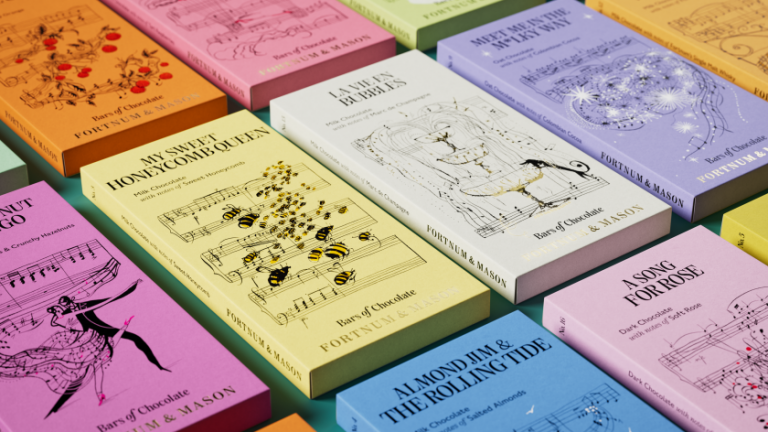Book photography by Robbie Maynard
This side project by Olly Wood of McCann London confronts some sacred cows… both metaphorically and literally.
If you’ve ever read any of the career tips articles we share on Creative Boom, you’ll probably have heard a lot of positive noises about side projects. They’re a great way to give your creative brain a workout, help you learn new skills, and often open up unexpected connections and opportunities.
You can start a side project at any stage in your career, and if you were looking for a good example to follow, then check out this unusual cookbook that Olly Wood, creative director at McCann London, has just brought to market.
Titled Blasphemy, the 104-page linen hardback is far from your typical recipe collection. Instead, it’s a deliberate provocation that uses food as a medium to explore cultural boundaries and challenge established cooking methods.
What’s it about?
Olly describes the recipes it contains as “acts of culinary sin, designed to stir both the kitchen and the conscience”. For instance, Unholy Beef features beef short ribs marinated in Chaat Masala, a spice blend from Gujarat, a region where beef consumption is strictly forbidden for the Hindu majority. “This dish confronts cultural restrictions head-on,” says Olly, “forcing readers to reflect on boundaries we are often too afraid to cross.”
Another example is the Shawarma Bagel, which features traditional Palestinian shawarma chicken confined within a Jewish bagel. Olly describes this as “a provocative pairing that symbolises endurance and resistance, at the same time questioning why the two cannot come together in harmony”.
The book also experiments with culinary science; Olly offers two examples. “In Wrong Chow Mein, the alchemical act of altering the pH level of spaghetti transforms it into springy noodles fit for an unorthodox version of this classic Chinese dish,” he reveals. “Meanwhile, Charred Arancini requires burning fresh herbs until charred black to create the coating, introducing smoky depths and complex flavours to this widely loved Italian street food.”
How’s it designed?
The book mimics a Biblical layout, again in a deliberately subversive way.
“By manipulating its layout, typesetting principles and verse annotations, the book challenges traditional norms,” explains Olly.
“Through subtle alterations and irreverent interpretations,” he continues, “the visual and narrative elements evoke a punk spirit that reflects the audacity of the acts within. Filled with moments of intentional chaos, including almost-illegible overlays, misalignments, nasty kerns, mirrored characters and a devilish red aesthetic, all together creating a striking aesthetic.
“The layout stumbles through pixelated photographic errors and heavy photoshopping,” he adds. “Whilst the writing embraces imperfection, typos, grammatical quirks, and awkward phrasing, each serving as a testament to a bold disregard for conventional standards.”
Following a Biblical tone, each “sinful” act is embellished with a playful story inspired by Biblical tales. “In Not-Apple Pie, the traditional apple pie is given a forbidden twist. By swapping the classic apple filling for tropical pineapple, this reimagined pie takes on the allure of the forbidden fruit, a playful parallel to the temptation in Eden, turning a cherished symbol of warmth and nostalgia into a surprising bite of rebellion.”
A unique project
In short, this will be one of many cooking books released this Christmas, but probably unlike any other. Olly describes it as “a project that invites readers to reconsider the boundaries we all take for granted while offering a fresh, rebellious take on what food can represent”.
He adds: “We grow up moulded by cultural rules, traditions, and unspoken expectations designed to define our identities and dictate how we approach life. While these guidelines offer structure and connection to tradition, they often come at the cost of excitement and fresh perspectives. Yet, history shows that when we challenge and disrupt these norms, they can expand possibilities for us all.
“This spirit of defiance inspired Blasphemy, a project born with a desire to confront culinary taboos and provoke us to question established methods.”










